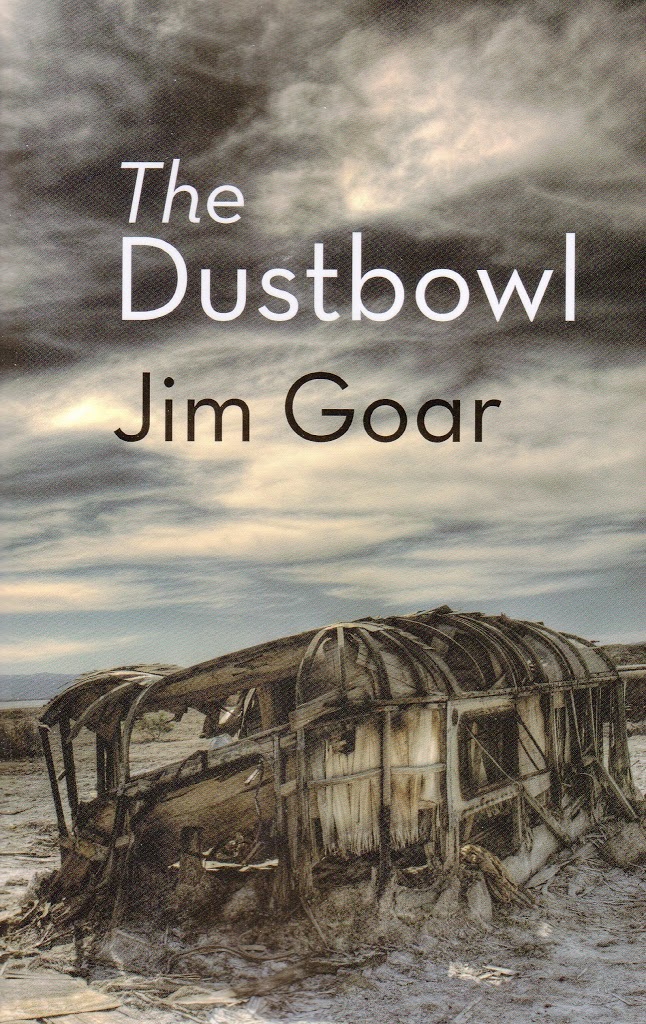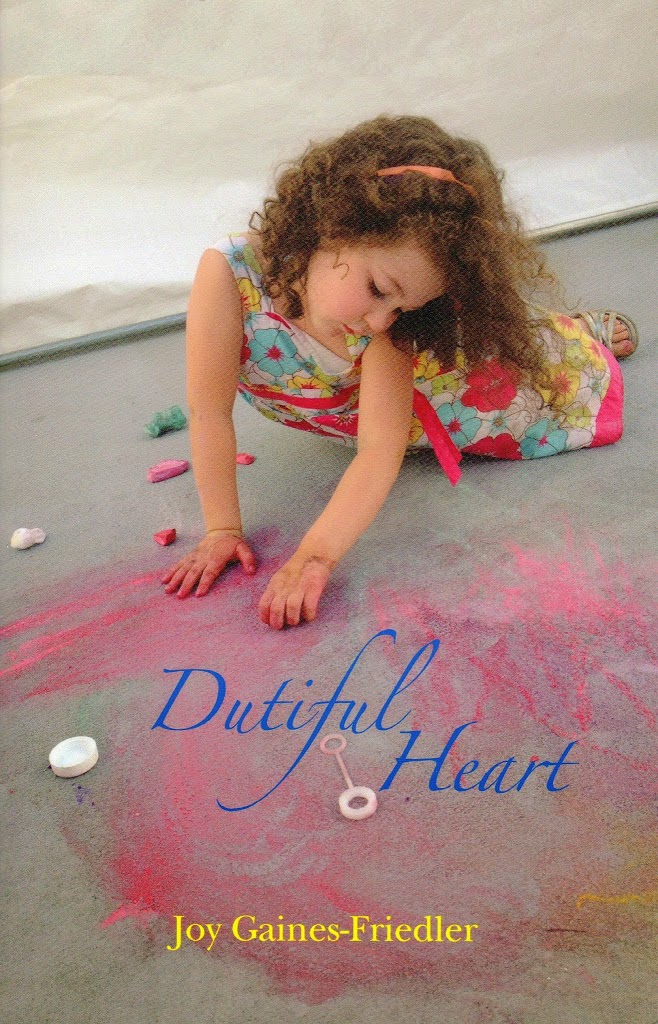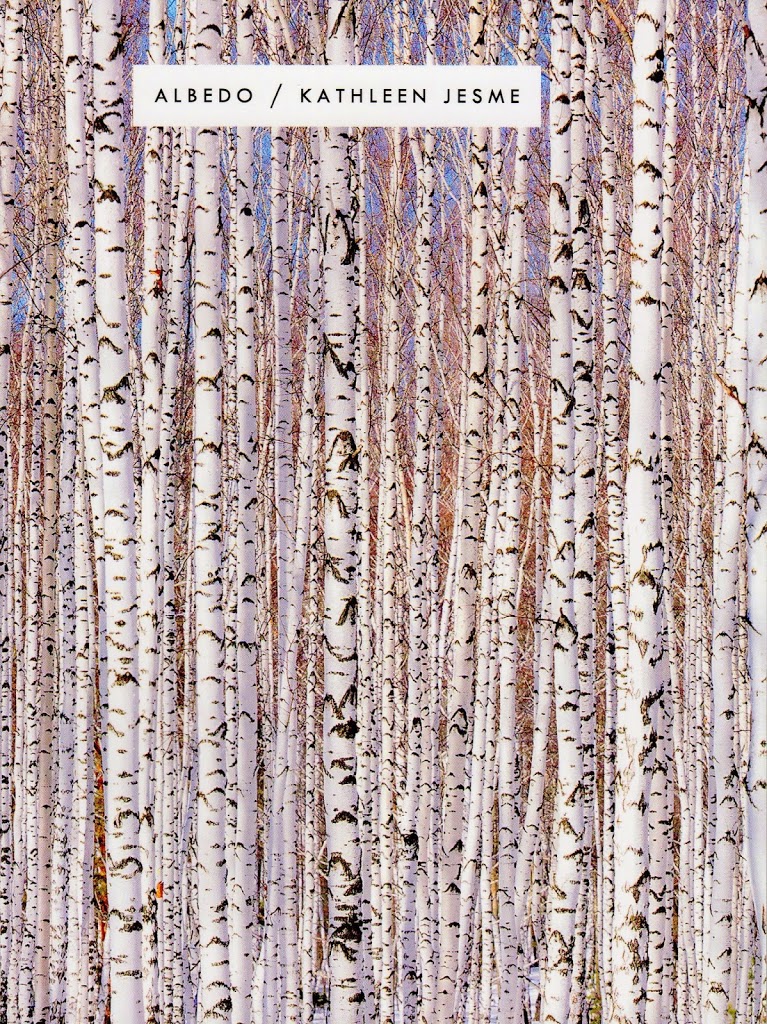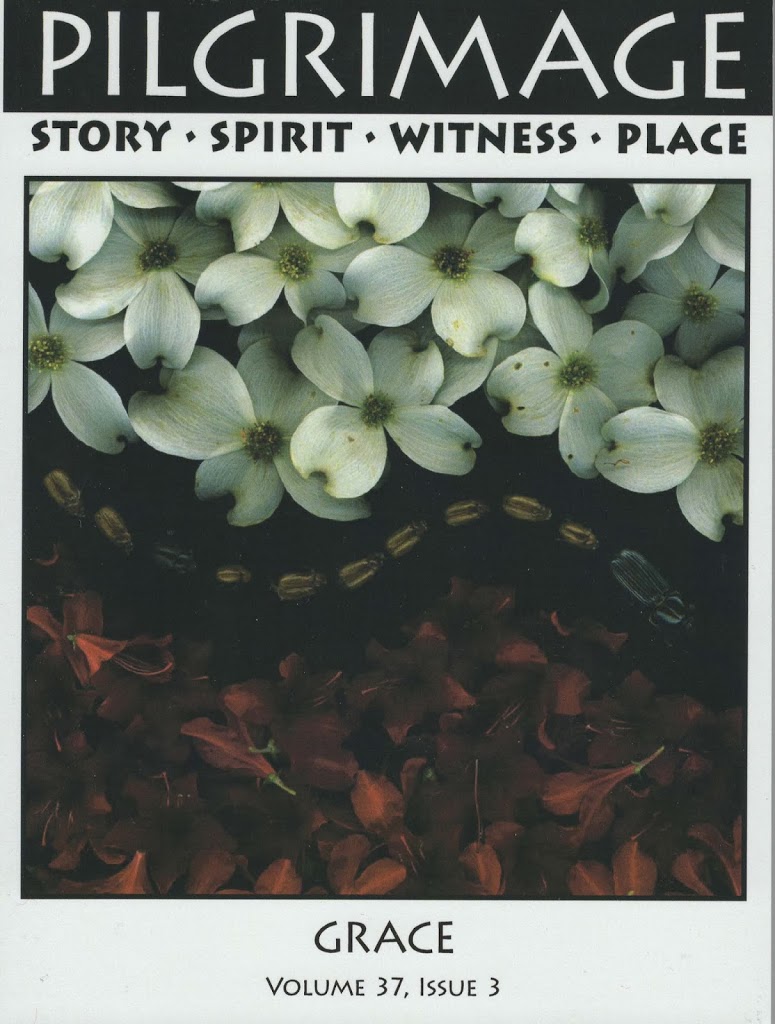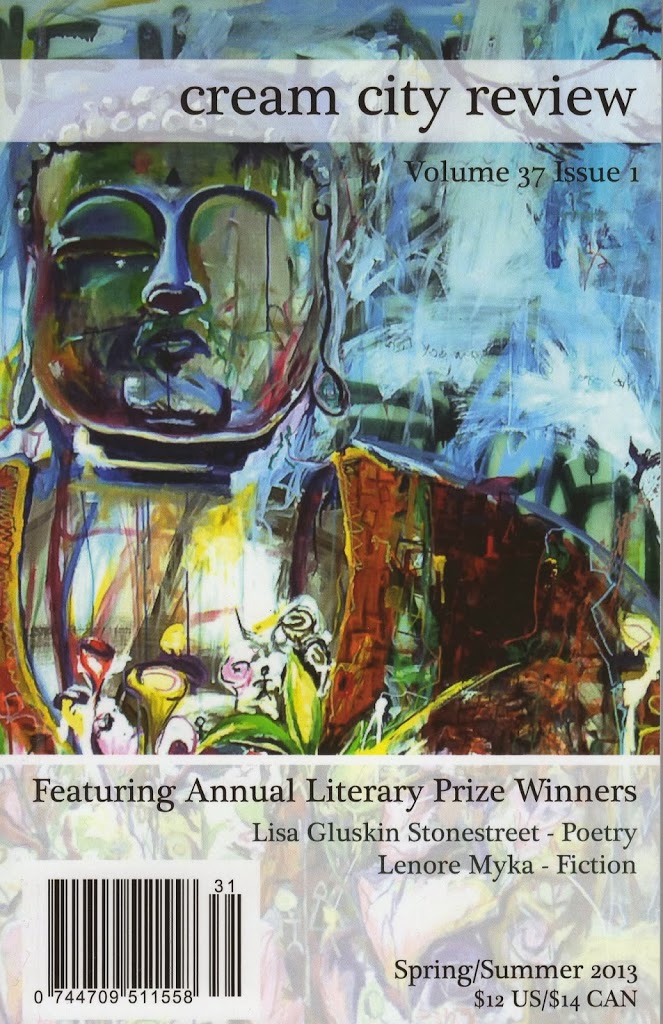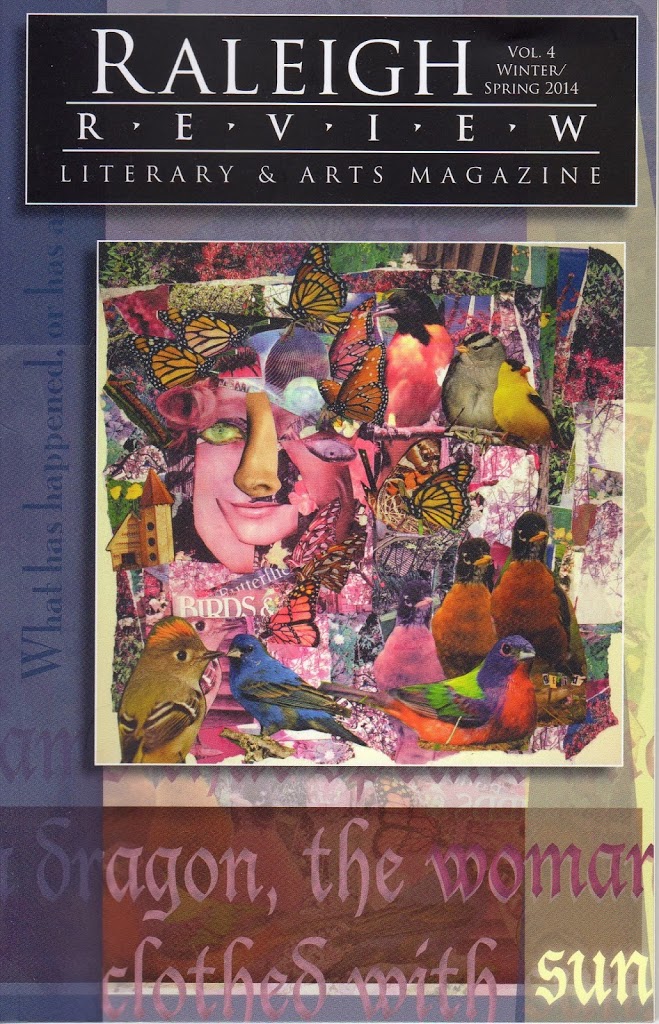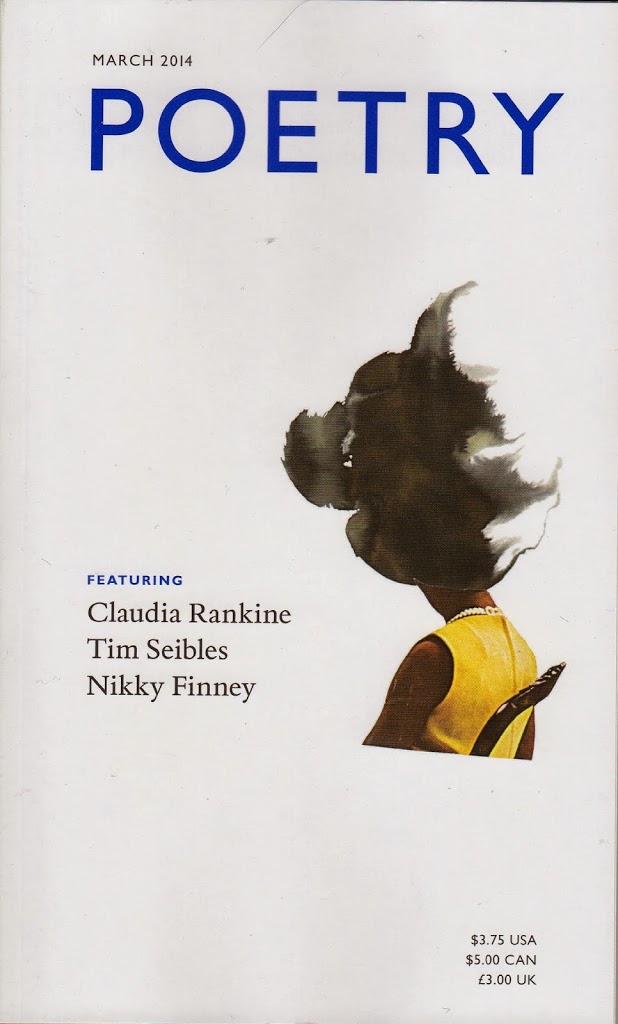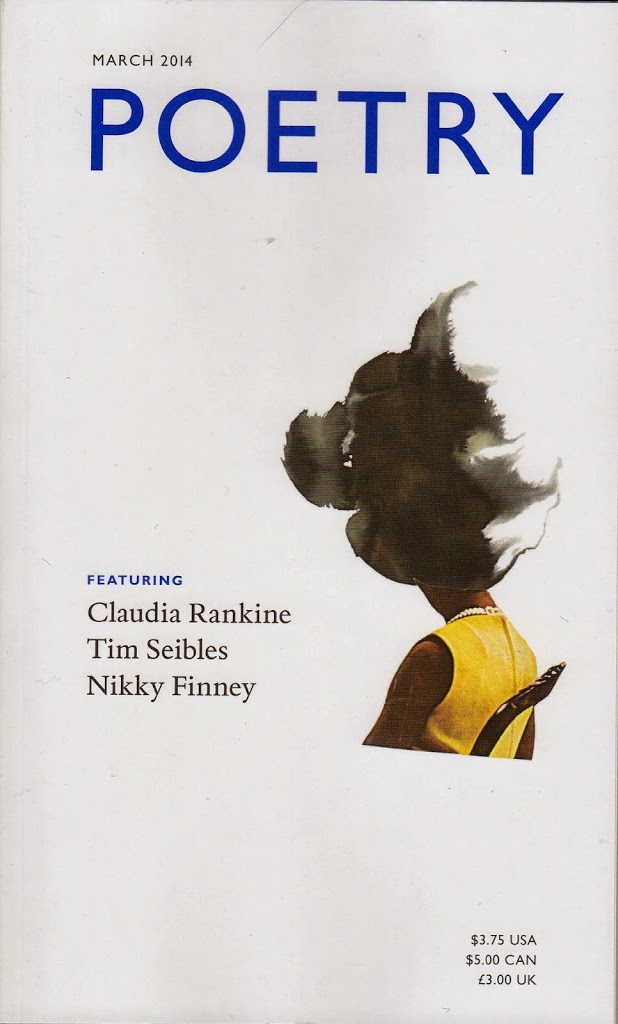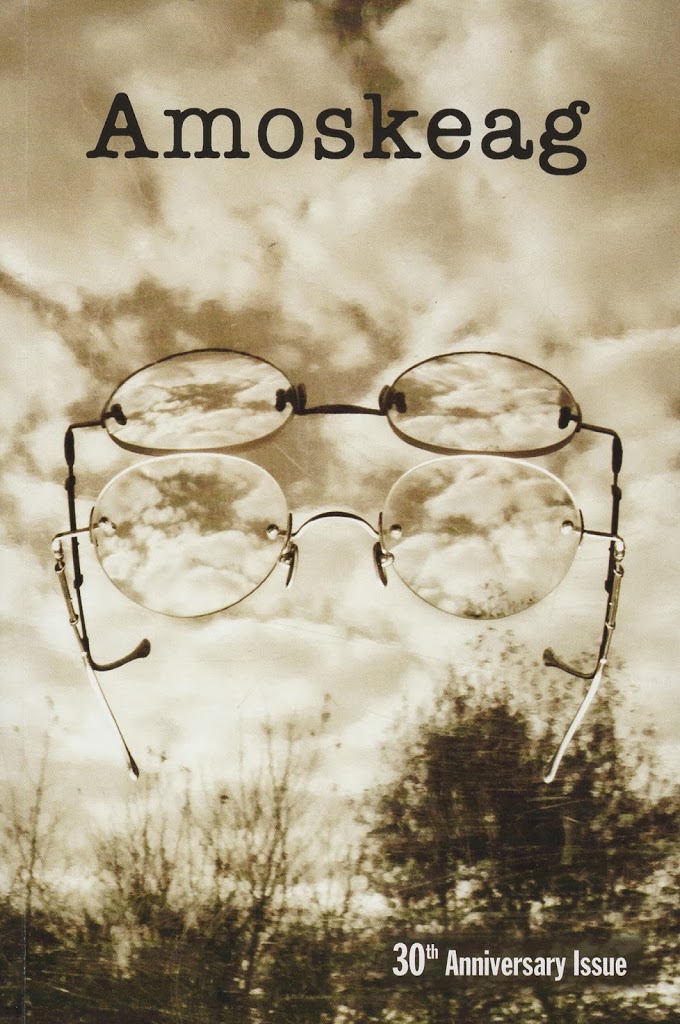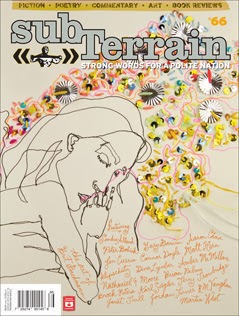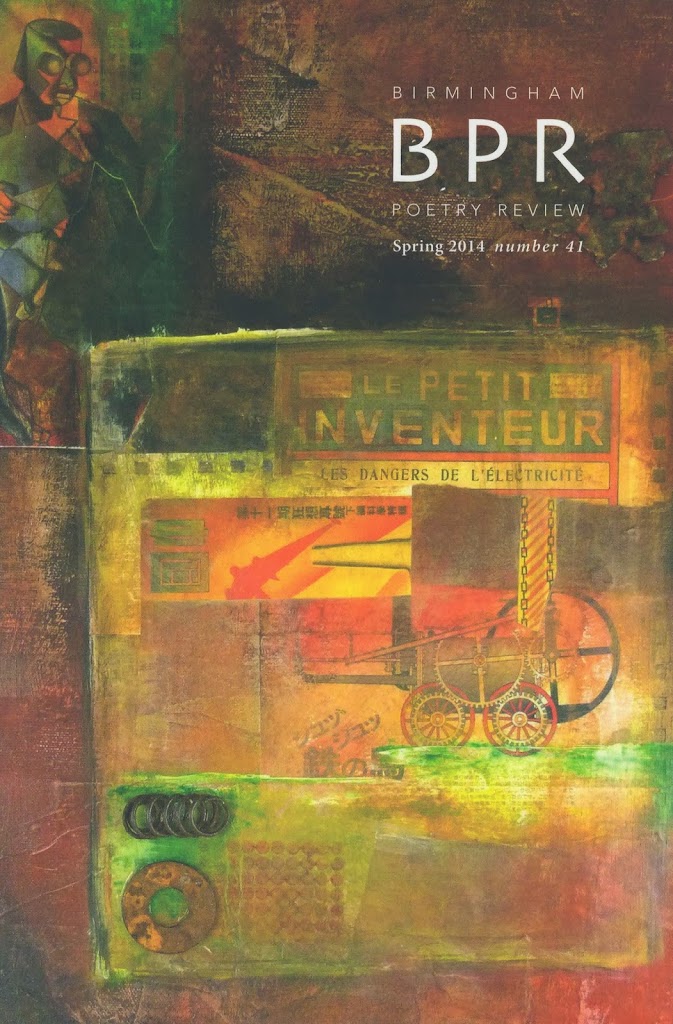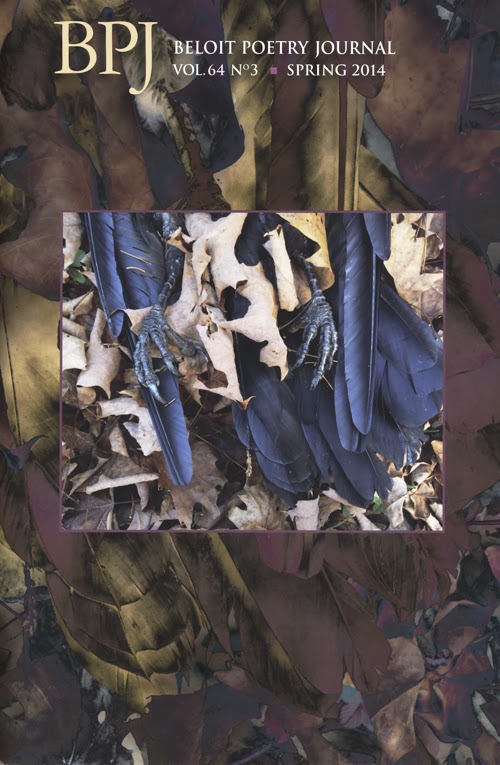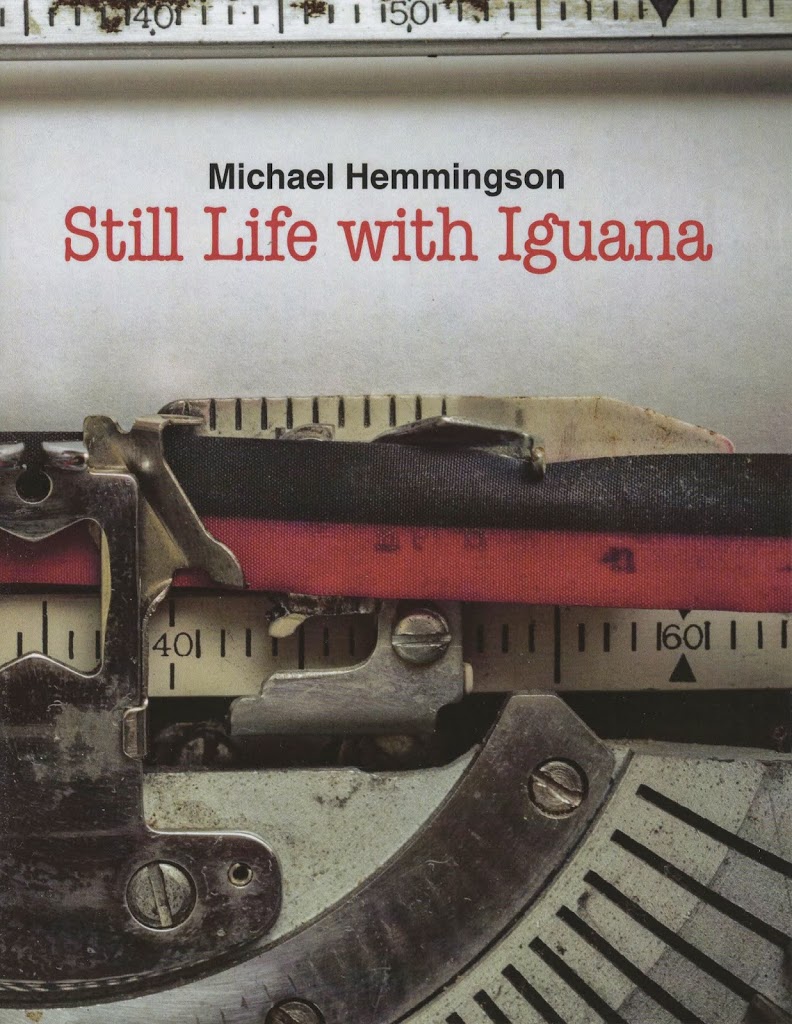The Ledge, lyrical and relentlessly beautiful, may lead a reader safely away from any kind of cliff or precipice, despite the suggestion of its title. The connotation for this volume does ring true if one reads ‘ledge’ as an embodiment of ‘edgy,’ but not with the metaphor of a natural feature entailing the risk of falling. The work is precise and challenging and invites further consideration; I examine a few especially rich works here. Continue reading “The Ledge – Winter 2013”
NewPages Blog
At the NewPages Blog readers and writers can catch up with their favorite literary and alternative magazines, independent and university presses, creative writing programs, and writing and literary events. Find new books, new issue announcements, contest winners, and so much more!
The Ledge – Winter 2013
Spread the word!
The Louisville Review – Fall 2013
I’ve admitted on several different occasions, perhaps even during previous reviews, that I absolutely judge books by their covers. Sure, maybe this is partially because of laziness, but also I believe a journal’s aesthetic comes through not just in its material, but also in its design. It’s not a strategy I swear by, but very often a journal’s look can be telling of the type of material inside. Continue reading “The Louisville Review – Fall 2013”
Spread the word!
Michigan Quarterly Review – Fall 2013
Published at the University of Michigan, The Michigan Quarterly Review is an attractive journal. At roughly 150 pages, it is fairly slim, with a vibrant glossy cover. More importantly, what’s inside is also interesting: an attractive mix of the creative and academic essays alongside fiction and poetry. Continue reading “Michigan Quarterly Review – Fall 2013”
Spread the word!
Natural Bridge – 2013
The cover of this slim volume (nine poems, three short stories, one great interview) depicts an ethereal white horse splashing in, or wading through, or rising up from, blue waves of grass against a stark black background. The spine is the blue of the grass; the title is the white of the horse. The whole effect is classy and dreamlike at the same time, a little like the contents of the journal—an image you want to remember, and yet it doesn’t feel quite like home. Continue reading “Natural Bridge – 2013”
Spread the word!
New Madrid – Winter 2014
I loved learning that New Madrid (emphasis on “mad”) is named for a seismic zone in Mississippi and Kentucky where, in 1811-12, four earthquakes struck of such magnitude that they changed the course of the Mississippi River. Great power follows the name of such a place! Continue reading “New Madrid – Winter 2014”
Spread the word!
The Normal School – 2013
One of my favorite things about The Normal School is that the editors are so willing to try something new, but they never leave the reader behind. Managing Editor Sophie Beck and her team begin a new experiment in this issue, adding recurring columns: Joe Bonomo will write about music, William Bradley will take on comics, and Phillip Lopate will submit musings about films. Continue reading “The Normal School – 2013”
Spread the word!
Room – 2013
Room is Canada’s oldest literary journal that is both by and about women; each issue focuses on women and gives them a space to “speak and connect” with one another. This issue tackles the theme of “A progressive lens,” promising to bring forth and support new ideas in the form of poetry, fiction, and nonfiction along with an interview and a few book reviews. Continue reading “Room – 2013”
Spread the word!
Salmagundi – Fall 2013/Winter 2014
Reading Salmagundi is like sitting in a graduate school seminar in the humanities or a panel at the 92nd Street Y. Confidence, and sophistication, big names, and the requisite originality ooze through the page. Fortunately, it never quite tips into snobbishness, and following the writers’ trains of thought was for me a demanding but enjoyable exercise. Depending on your background, though and I use the word “background” broadly to mean cultural, ethnic, class, academic, professional, or simply experience or preference as a reader—it may be hard to miss the milieu in which Salmagundi situates itself: among the cerebral, among those who do not have to or who do not worry about money, those who have already carved out a place for themselves in the world, the arrived. Continue reading “Salmagundi – Fall 2013/Winter 2014”
Spread the word!
Stone Voices – Winter 2013
Eleven writers and four featured artists share space in this 98 page-long issue. The glossy finish on every page, a very artistic layout, and deep thought writings make this issue of Stone Voices a perfect coffee table magazine. It carries a byline of “art-spirituality-mindfulness-creativity,” calling out for readers looking inside to invest some time rather than a distracted flip through. That is not to say the material is not entertaining. Continue reading “Stone Voices – Winter 2013”
Spread the word!
Sugar House Review – Fall/Winter 2013
Sugar House Review is an independent poetry journal based in Salt Lake City, UT. It is named after one of the oldest and most artistic neighborhoods in the city, Sugar House. The journal aims not only to be rooted in their region and to gain local recognition, but to also appeal to a larger national and international audience. This desire for a global reach ensures that each issue of Sugar House Review is filled with great poetry and thoughtful reviews. As the artwork of this issue suggests the underlying theme is of the honeybee, each poem calls upon the “spirit” of the honeybee in some form of another making issue number nine a delectable issue. Continue reading “Sugar House Review – Fall/Winter 2013”
Spread the word!
Breakwater Review – Winter 2014
As the title of the journal suggests, Breakwater Review is the in-between. “We are both the literal space between ocean and shore and the virtual space between reader and writer. And as it turns out, we want to read about other places like us—those liminal spaces in life.” Their tenth and current issue demonstrates this through a number of poems and a couple of prose pieces. Continue reading “Breakwater Review – Winter 2014”
Spread the word!
Cider Press Review – January 2014
Now in its sixteenth volume, Cider Press Review has not only established itself as a quality journal that publishes excellent poetry, but a quality journal that publishes excellent poems that complement each other. All of the pieces in this issue fit, they go together, not like peanut butter and jelly (because while delicious, not really similar) but like cinnamon and sugar (both delicately sweet, combined to make an even greater flavor). The issue is prepped with the first poem, Lynn Pedersen’s “Begin.” It’s the start of a journey, but “How do you map that? What part of a mountain range, / what river corresponds to fantasy?” And while you cannot be sure what you will need, eventually you have to just go, “Otherwise, / there’s no one to tell the story.” Continue reading “Cider Press Review – January 2014”
Spread the word!
Dragnet Magazine – November 2013
Dragnet: always a delight to read. This particular issue features an Ouija board, a calculator museum, a fortuneteller, a twin who loses his virginity with the presence of his conjoined brother, and watermelons that are not for sale. Sadly, Dragnet has announced that they are closed to submissions as they are on an indefinite hiatus. It’s sad to see such a quality digital publication cease—but perhaps one day they’ll be back. Continue reading “Dragnet Magazine – November 2013”
Spread the word!
The Oklahoma Review – Fall 2013
Put forth by the Department of English and Foreign Languages at Cameron University, The Oklahoma Review publishes a mixture of fiction, nonfiction, poetry, and reviews. Although I found a couple of pieces in this issue to be a little too daring (to the point they weren’t successful), there were several pieces that made it worth the read. James Brubaker contributes a whimsical piece titled “Three Television Shows About Familial Love.” Both comedy and social commentary, the fiction piece accurately picks out key elements of television shows and turns the elements in on themselves. Continue reading “The Oklahoma Review – Fall 2013”
Spread the word!
The Ostrich Review – 2014
The Ostrich Review, founded in 2012 and having put out five issues so far, offers fiction, poetry, and artwork. This issue holds several pieces worth reading. If you read Chris Lowe’s “Kudzu” for face-value and you’re just along for the ride, you may not get much out of it. It’s not just about wrestling, football, and pre-teen sexual desire. The reward comes with a close read, piecing together all the subtle references to the character’s mother… Continue reading “The Ostrich Review – 2014”
Spread the word!
American Life in Poetry :: Amy Fleury
American Life in Poetry: Column 468
BY TED KOOSER, U.S. POET LAUREATE
Here’s another lovely poem to honor the caregivers among us. Amy Fleury lives and teaches in Louisiana.
Ablution
Because one must be naked to get clean,
my dad shrugs out of his pajama shirt,
steps from his boxers and into the tub
as I brace him, whose long illness
has made him shed modesty too.
Seated on the plastic bench, he holds
the soap like a caught fish in his lap,
waiting for me to test the water’s heat
on my wrist before turning the nozzle
toward his pale skin. He leans over
to be doused, then hands me the soap
so I might scrub his shoulders and neck,
suds sluicing from spine to buttock cleft.
Like a child he wants a washcloth
to cover his eyes while I lather
a palmful of pearlescent shampoo
into his craniotomy-scarred scalp
and then rinse clear whatever soft hair
is left. Our voices echo in the spray
and steam of this room where once,
long ago, he knelt at the tub’s edge
to pour cups of bathwater over my head.
He reminds me to wash behind his ears,
and when he judges himself to be clean,
I turn off the tap. He grips the safety bar,
steadies himself, and stands. Turning to me,
his body is dripping and frail and pink.
And although I am nearly forty,
he has this one last thing to teach me.
I hold open the towel to receive him.
American Life in Poetry is made possible by The Poetry Foundation (www.poetryfoundation.org), publisher of Poetry magazine. It is also supported by the Department of English at the University of Nebraska-Lincoln. Poem copyright ©2013 by Amy Fleury from her most recent book of poems, Sympathetic Magic, Southern Illinois Univ. Press, 2013. Poem reprinted by permission of Amy Fleury and the publisher. Introduction copyright © 2014 by The Poetry Foundation. The introduction’s author, Ted Kooser, served as United States Poet Laureate Consultant in Poetry to the Library of Congress from 2004-2006. We do not accept unsolicited manuscripts.
Spread the word!
Book Covers :: Picks of the Week :: March 14, 2014
Book covers are skewed to poetry this time, by sheer chance. Enjoy!
The Dustbowl, poetry by Jim Goar, Shearsman Books
The dustbowl loomed. A book that
could not be opened. The bastard
son remembered a sword. This is my
body. All those angry lambs. Crows
go round and round. Ain’t got no
home. A barn beneath the sand.
Here today. Gone tomorrow….
Dutiful Heart, poetry by Joy Gaines-Friedler, Broadkill River Press
from “Assisted Living/Caring for the Irreducible”:
Sunlight breaks through the heart here.
It can barely raise its head,
its neck weak as an after-harvest stalk.
………………………………………………….
There are two sides to this life:
The side you nurture, and the side you fail.
The child you inspire, and the one you reduce.
Sacrifice. And the women you turn hard against.
Albedo, poetry by Kathleen Jesme, Ahsahta Press
from “Hard Believing Time”:
Went hungry. For a long day longer than reasons, went out
to the garden and the garden was bare. Even the crows
stayed away. At first, a long sign of summer,
then second late frost dropping the buds to their knees.
I’ve been dropped to mine, too. Used to be
I’d pray when my knees kissed the dirt of my garden. But
now the ground says I’m the scourge of God, so I come
crashing down. When the end comes: even if
it’s true, the end has a way of returning every favor, a way
of washing its hands of you.
Spread the word!
Pilgrimage Welcomes New Parternships
In Pilgrimage‘s “Grace” issue, Editor Juan Morales announces two new partnerships the magazine will take on. The first is with CantoMundo, “an organization that cultivates a community of Latina/o poets. Through workshops, symposia, and public readings, CanotMundo provides a space for the creation, documentation, and critical analysis of Latina/o poetry.” The second partnership is with the SoCo Reading Series, “which brings poets and writers to the CSU-Pueblo campus for featured readings and classroom visits.”
Additionally, Pilgrimage is now accepting submissions through Submittable but will still continue to check the mail for any postal submissions.
Spread the word!
Sinister Wisdom :: “Living as a Lesbian” by Cheryl Clarke
Sinister Wisdom‘s issue 91 features the work of one author, Cheryl Clarke. In an introduction, Nancy K. Bereanowrites, “It is absolutely clear to me that Cheryl Clarke was then, and remains now, a singular, powerful voice articulating the truths of fierce, independent women of color: lesbians who often live lives made triply invisible by their sexuality, their race, and their working-class realities. And she writes with the kind of precision and attention to linguistic detail that might have impressed those Republican ladies if they had had the emotional and political wherewithal to take on her work.”
Co-published by A Midsummer Night’s Press and Sinister Wisdom, the Sapphic Classics Series publishes reprint editions of iconic works of lesbian poetry. The third Sapphic Classics will be issued in early 2015.
Spread the word!
Cream City Review 2014 Contest Winners
Cream City Review‘s Poetry Prize was judged by Rebecca Hazelton and was awarded to Lisa Gluskin Stonestreet, and the Fiction Prize was judged by Tom Williams and awarded to Lenore Myka. You can read them in Issue 37.1.
Hazelton writes, “In Lisa Gluskin Stonestreet’s poems, motherhood is a transformative and even at times frightening event, one that redefines the self and one that threatens to subsume it. Her lines, ranging from long and loping to brief, almost frantic reports, mimetically capture the infatuation and the exhaustion the mother in these poems feels for her child, and most poignantly, the difficulties of remaining a writer in those circumstances.”
Wiliams writes, “[Myka] seemed to never under write or over write or play coy. It maintains a magical combination of plot moves that unsettle and affirm. It answers questions just before the reader is prepared to ask them. And, to me, most importantly, its elements accrete in a way that establish this unassailable reality: the story is presented in the only way it could be told.
Spread the word!
The Necessity of Trans* Literature :: Jos Charles
“Fancy men in fancy clothes will tell you writing isn’t safe or to face our ugliness one must risk or any number of fancy things. I don’t know if writing can ever be safe but I do know there is nothing risky in telling the old stories about gender. The old stories I read and read that denied me access and made jokes at my expense. If I was lucky I would see a trans person (almost always a trans woman) be inspirational, Wow so uplifting, they say, but, more often, I saw them dead. Trans* folks’ narrative legacy is almost always, at best, a warning sign.
“Therefore as a writer I’ve come to know that submitting a work means either outing myself and writing the inspirational trans* story or dead trans* story or lying about my gender. Betray what it means to exist or betray myself. THEM, a trans* literary journal I founded and edit, is an attempt to facilitate as safe a space as possible for trans* folks to write what they want, to avoid the pressure of how they ought to display or not display their gender.”
Read the rest by Jos Charles, “Not In A Vacuum: On The Necessity Of Trans* Literature” published on The Quietus.
Spread the word!
Raleigh Review Becomes Biannual
In Volume 4 of Raleigh Review, Editor Rob Greene announces the plan to switch the magazine over to a biannual publication cycle. “Our mission is to foster the creation and availability of accessible yet provocative contemporary literature. Raleigh Review speaks best through the works we publish. We believe fine art should challenge as well as entertain.” The next issue this year is scheduled to come out in September.
The current issue, however, features C. Wade Bentley, Elizabeth Breen, John F. Buckley, Jill Coyle, Geri Digiorno, Panagiota Doukas, Jacqueline Doyle, Susan Frith, Karen Harryman, Gregory Josselyn, Alisha Karabinus, and more.
Spread the word!
Split this Rock
Poetry‘s March 2014 issue features 16 poets who will be attending and featured at Split This Rock Poetry Festival: Poems of Provocation & Witness in Washington D.C. In an introduction to the portfolio, Sarah Browning writes, “poetry can remind us of the true stories of our lives, rescuing those stories from the forces bent on shaping us to their purposes: that we become silent, fearful, distracted by mass entertainment and celebrity culture. Split This Rock celebrates and promotes poets doing this important work.”
The poets are Sheila Black, Yusef Komunyakaa, Eduardo C. Corral, Natalie Diaz, Franny Choi, Gayle Danley, Joy Harjo, Maria Melendez Kelson, Dunya Mikhail, Shailja Patel, Danez Smith, Anne Waldman, Wang Ping, Myra Sklarew, Claudia Rankine, and Tim Seibles.
Spread the word!
Finding Light in the Dark :: Courtney Sender
“In my first year of graduate school, I humiliated myself. A hip young male professor had us reading Martin McDonagh’s The Pillowman, a play that prominently features jail-cell torture, patricide, and countless other forms of violence. My professor said that this is what good writing does: uncovers the darkness in us all. I raised my hand and told him that I don’t think I have that kind of darkness in me…”
Read the rest by Courtney Sender in her essay “The Ability to Desire a Thousand” available on this month’s Glimmer Train Bulletin.
Spread the word!
American Life in Poetry :: Li-Young Lee
American Life in Poetry: Column 466
BY TED KOOSER, U.S. POET LAUREATE
Li-Young Lee is an important American poet of Chinese parentage who lives in Chicago. Much of his poetry is marked by unabashed tenderness, and this poem is a good example of that.
I Ask My Mother to Sing
She begins, and my grandmother joins her.
Mother and daughter sing like young girls.
If my father were alive, he would play
his accordion and sway like a boat.
I’ve never been in Peking, or the Summer Palace,
nor stood on the great Stone Boat to watch
the rain begin on Kuen Ming Lake, the picnickers
running away in the grass.
But I love to hear it sung;
how the waterlilies fill with rain until
they overturn, spilling water into water,
then rock back, and fill with more.
Both women have begun to cry.
But neither stops her song.
American Life in Poetry is made possible by The Poetry Foundation (www.poetryfoundation.org), publisher of Poetry magazine. It is also supported by the Department of English at the University of Nebraska-Lincoln. Poem copyright ©1986 by Li-Young Lee, whose most recent book of poems is Behind My Eyes, BOA Editions, Ltd., 2009. Poem reprinted by permission of Li-Young Lee and the publisher. Introduction copyright © 2014 by The Poetry Foundation. The introduction’s author, Ted Kooser, served as United States Poet Laureate Consultant in Poetry to the Library of Congress from 2004-2006. We do not accept unsolicited manuscripts.
Spread the word!
Feminist Scholars Digital Workshop
The Feminist Scholars Digital Workshop will take place Monday, June 16th through Sunday, June 22nd, 2014. Sign-up Deadline: Monday, May 5th. The Feminist Scholars Digital Workshop is an online, asynchronous, interdisciplinary, participant-driven workshop for scholars and individuals working on feminist-oriented research projects. The goal of the workshop is to create an online space where participants can exchange scholarship and ideas. The Feminist Scholars Digital Workshop is a group affiliated with the Humanities, Arts, Science, and Technology Alliance and Collaboratory (HASTAC).
Spread the word!
Lit Mag Covers :: Picks of the Week
Poetry‘s March 2014 issue features the work of Lorna Simpson, titled “Back of Yellow Dress,” for the issue dedicated to “Split this Rock” (of injustice) and the way in which poetry can “speak out publicly for justice and peace.”
———————————————–
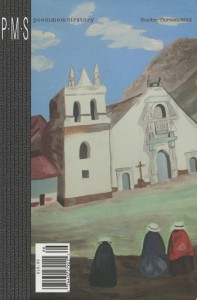
PMS poemmemoirstory‘s cover image is by In
Spread the word!
Free State Review New Editor
The staff of Free State Review will welcome a new member to their team: Robert Timberg, who will work as an associate editor specializing in nonfiction. Editor-in-Chief H.N. Burdett writes, “There is no one I respect more as a reporter, as an editor, as a patriot, and as a friend, and there is no way I could exaggerate my job in having our editorial staff augmented by his wisdom and judgement.”
Spread the word!
Prism Review 2014 Contest Winners
Prism Review has announced the winners for their 2014 Contests in poetry (judged by Nathan Hoks) and fiction (judged by Scott Nadelson):
Poetry Winner
Anna Soteria Morrison: “[Flight Fable]”
Fiction Winner
Rob Schultz: “The Evaluation of Echoes”
“The eroticism of ‘[Flight Fable]’ enacts a series of birds that hunt, feed, dance, and flaunt their necks,” writes Hoks. “Amid all this avian fluttering and flight, the poem dwells in the charged, conflicted space between desire and action. It is a lovely, strange poem by a poet whose imaginative ears and eyes transform language into an ornithological and amorous event.”
Nadelson writes that “’The Evaluation of Echoes’ stands out for the way it captures both a specific cultural moment and a character’s internal landscape, showing us an AM radio man’s world on the cusp of change—collapsing or blooming into something new we don’t yet know. DJ Noland is a fascinating figure, both jaded and full of wonder, and that the unpredicted snowstorm can be at once comic and magical is testament to the writer’s skill. What I admire above all, though, is the dazzling language…”
Both pieces will appear in issue 16, due out in June.
Spread the word!
Right Hand Pointing “.net”
Right Hand Pointing has recently changed their URL to righthandpointing.net. The old site (.com) does redirect, but it currently has a malware warning. To avoid this, please navigate to the new site. The editor, Dale, sent out a newsletter apologizing for the inconvenience and assuring that it will be fixed once there is time.
Spread the word!
30 Years for Amoskeag
Amoskeag has released their 30th anniversary issue. Editor Michael J. Brien writes that this issue “represents first time authors along with Puschart Prize nominees, presenting works of survival, nostalgia, hope, hurt, grief, and redemption…,” featuring work by Deborah Brown, Donna Pucciani, SNHU’s MFA Award in prose winner James Seals, the SNHU Undergraduate Prose Winner Amy Fontenot, the SNHU Undergrduate poetry winner Natalie Jones, the New Hampshire High School Poetry Winner Kelsey Jarvis, the New Hampshire High School Prose Winner Emily Bascom, and more.
Along with the issue came an announcement that the next issue, Issue 31 to be released in April, will be the last for Editor Brien. “The University has been blessed with the continuing of this national journal for over thirty years,” he says. “Each editor has contributed to Amoskeag‘s growth and expansion. This year we have had two of our authors, Ainey Greaney and John Debon, selected as Notables in The Best American Essays of 2013. It’s stuff like that that makes me as an editor hopeful in each submission that arrives at my desk.” Benjamin Nugent will be taking over with issue 32.
The press release states that “With the change of editor, the magazine will continue to produce noteworthy and thought-provoking poetry, fiction, nonfiction, photography, etc., but will also take new steps towards better serving the future creative writing majors of the SNHU community. The literary magazine greatly focuses on showcasing their work as well as the work of other aspiring and established regional, national and International writers.”
Spread the word!
Is David Sedaris Funny in Greek?
In World Literature Today‘s March 2014 issue, Myrsini Gana contributes an excellent article on the idea of translating humor, through her experience with translating David Sedaris’s work. “Humor is a big deal,” she writes. “It’s not a question of knowing the words; there’s a whole world behind it. Every country’s—and in consequence every language’s—take on humor reveals its deeper character, is idiosyncratic, and operates well within a “closed circle.” Seen like this, a whole country can be like a group of friends—they have their own codes, their own jokes—and outsiders are just that: they don’t get it.”
“I could fill pages with examples explaining in detail how every instance calls for a different line of thought and a different solution. I wish I could say that every solution I have chosen is the optimal one, but there is no universal rule to dictate a translator’s decisions. That’s why no two translators will ever come up with the exact same translation.”
Also included in this section is a brief interview with David Sedaris: “It’s one thing to translate a joke, and another to translate timing, which is hwere a lot of my laughs come from. It’s especially difficult when the sentence structure is so very different in German, for instance, when the verb comes at the end of the sentence. In my last collection, one of the laughs was based on the way people in Toronto say “about.” The joke didn’t make sense in German, so the translator focused on another word in the sentence—”kiosk”—and moved my Canadian to French-speaking Quebec. It was a brilliant save, but nothing could salvage the ending of another essay. The laugh is based on the phrases ‘your trash’ and ‘you’re trash,’ and I don’t imagine it will work in anything but English.”
Spread the word!
Lush Triumphant Literary Awards 2013
Subterrain’s Volume 7 Issue 66 features the winners of the Lush Triumphant Literary Awards Competition 2013.
Fiction Winner
Janet Trull: “Hot Town”
Poetry Winner
Connor Doyle: “Under City Suite”
Nonfiction Winner
Aaron Chan: “A Case of Jeff”
The rest of the issue includes fiction from Brock Peters, Martin West, Dina Lyuber, Gary Barwin, Sandra Alland, and Jordan Turner; poetry from Amber McMillan, Terry Trowbridge, klipschutz, and Jen Currin; and featured artist Brit Bachmann.
Spread the word!
Mary & the Giant Mechanism
One challenge with reading poetry that seems to be creating its own forms for what it is seeing and expressing is the tension between the urge to absorb the work as it is presented and an urge to search for clues—to go digging in, and perhaps between, the lines. On my first read through Mary Molinary’s Mary & the Giant Mechanism, I jotted little notes to myself and often thought, “hmmm . . .” On my second read-through, I mostly flipped through the pages at random, sometimes reading sections out of order, and thought “Ohh!” I think one of the successes of this poet’s first book of poetry is that it did compel me to go searching for larger “mechanisms” (to echo the title) that link the images and themes presented here. Continue reading “Mary & the Giant Mechanism”
Spread the word!
Shake Terribly the Earth
The word “Appalachia” can call to mind a host of stereotypes: poverty, fundamentalism, environmental exploitation, backwardness. Each word conjures up a vague image of a broad region that many have never visited. By contrast, specificity and personal experience come to the forefront in Sarah Beth Childers’s debut essay collection, Shake Terribly the Earth: Stories from an Appalachian Family. Here, in linked essays that consider family ties, faith, and history, Childers reveals her unique understanding of West Virginia as seen through her eyes and the eyes of her family. Through careful attention to the personal, these essays gently argue for the validity of each person’s understanding of their own world. Continue reading “Shake Terribly the Earth”
Spread the word!
Melville as Poet
Call me inspired. Most audiences come to know Herman Melville through Moby-Dick and Billy Budd, Sailor—deep, complex narratives that swell with metaphor and allegory. Both have entered the classical Americanist canon of literature thanks in large part to the early twentieth-century “Melville revival” within academia. Melville’s writing, however, extends well past the White Whale, and for the latter half of his literary career, his publication efforts and creative energy focused on his poetry. In recent decades, scholarly interest has turned to Melville’s canon of poetry as a window into American history and the understood role of a poet. (“[Melville’s] pained ironic view of his position as poetry weighed upon him.”) Melville as Poet: The Art of “Pulsed Life” (a bit of an odd title, but better than Melville: More than Moby) explores the breadth and depth of Melville’s poetry through its emphasis on the history, narrative, and imagery of a unique, careful, and lyrical American poet. Continue reading “Melville as Poet”
Spread the word!
Hope Tree
The front matter of Frank Montesonti’s Hope Tree asserts something interesting for an erasure formed from a how-to manual about pruning: “method / is unnecessary / to remove / the past season.” It is a fitting introduction to a book in which leniency and ruthlessness, and growth and death, are inexorably intertwined. Continue reading “Hope Tree”
Spread the word!
Mirages
Mirages: The Unexpurgated Diary of Anaïs Nin, 1939-1947 begins with Anaïs Nin and her husband, Hugo Guiler, escaping the war in Europe to relocate to New York City. On the first page, she is also concerned about whether her two lovers, Henry Miller and Gonzalo Moré, would come to New York with her. They did. Also on the first page, she writes: “I am still baffled by the mystery of how man has an independent life from woman, whereas I die when separated from my love.” Four hundred and forty pages and a dozen or more lovers later, she is still in the realm of needing love, experiencing loss, and longing for the one love that will make her whole. Her lovers are the content the narrative is hung upon, but not the most interesting. There is very little written outside her desire for love, finding love, being in love, leaving the lover, very little written about the art of the day or even about the city of New York or the world that was at war. The drama here is within the psyche of Anaïs Nin. Continue reading “Mirages”
Spread the word!
Collected Poems
Many readers associate Ron Padgett with the so-called second generation of the New York School of Poets. He did, after all, edit, with David Shapiro, the multi-generational spread An Anthology of New York Poets (1970), was at one time director of the Poetry Project at St. Mark’s Church in the Lower East Side, and has continued for decades to split his time living between homes in Vermont and Manhattan. He has also written intimate memoirs of, as well as edited works by, his friends, poet Ted Berrigan and artist Joe Brainard. And of course in the 1960s, the three collaborated on the infamously mischievous Bean Spasms, now a classic of collaboration from the era. Continue reading “Collected Poems”
Spread the word!
Let the Dark Flower Blossom
In Norah Labiner’s Let the Dark Flower Blossom, the character Roman Stone, a writer, says, “A story is a map to the underworld and how you follow that map is, of course, entirely up to you.” This story is cut into different patterns of back-story and forward motion, and point of view shifts from first person to third, character to character. Stone, a celebrity novelist, has been murdered. The news is shocking but not really a surprise to the lovers, enemies, and friends who have revolved around him, seemingly helpless to get out of his orbit. What the reader learns about Stone comes from the retrospective memory of the others. He appears to be the monster in the center of the labyrinth. Continue reading “Let the Dark Flower Blossom”
Spread the word!
Trances of the Blast
“What is the code for happiness?” Mary Ruefle asks in “Trances of the Blast,” a poem that comes midway through her book of the same title, but is as good a place as any to begin: Continue reading “Trances of the Blast”
Spread the word!
A Long Way from Verona
To read a Jane Gardam novel is to be sorry when it ends. In this country she is best known for her non-chronological Old Filth trilogy: Old Filth, The Man in the Wooden Hat, and Final Friends. But this early (originally published in 1971), seemingly autobiographical novel, A Long Way from Verona, has the same Dickensian, odd, well-defined characters. Her wit comes through as usual, in spite of the sometimes obscure British references. Continue reading “A Long Way from Verona”
Spread the word!
Rigger Death & Hoist Another
The best word to describe Laura McCullough’s newest book might be “fearless.” This may seem strange, as many of the poems deal with the horrors and threats of the world. These are not poems without fear, but poems that directly confront the speaker’s fears, and in so doing, they offer a way through. Continue reading “Rigger Death & Hoist Another”
Spread the word!
I Wasn’t Strong Like This When I Started Out
The Jewish Healthcare Foundation enlisted Lee Gutkind, the editor of Creative Nonfiction magazine, to choose these twenty-one essays in this new collection from the two hundred submissions sent in response to a call for manuscripts. Gutkind, who in the past two decades has written five books about the medical world, reveals in the introduction that he has a clear memory of the doctors and patients in his stories but not of the nurses, who remain semi-invisible to most of us, even though there are over 2.7 million of them working in the United States. The purpose of this book is to bring nurses out of the shadows and shine a light on the difficult work they do, as well as to educate readers about the demands of this challenging occupation. Continue reading “I Wasn’t Strong Like This When I Started Out”
Spread the word!
The Year of the Rooster
The Year of the Rooster, Noah Eli Gordon’s eighth book, examines a crisis of faith: a poet-narrator who questions his impulse to write and not write, the trappings or usefulness of theory and craft, and the very ability of poetry to signify. Gordon, an assistant professor at the University of Colorado at Boulder where he directs Subito Press, also founded chapbook publisher Letter Machine Editions with Joshua Marie Wilkinson in 2007; they both co-edit The Volta as well. Gordon is a writer fully immersed in a poet’s life, but his narrator questions the impact of such an immersion. Continue reading “The Year of the Rooster”
Spread the word!
The Artist’s Library
There are few surprises in The Artist’s Library: A Field Guide. Author-librarians Laura Damon-Moore and Erinn Batykefer do not have to convince bibliophiles that the library is hallowed ground. What they set out to do, and accomplish nicely, is offer ideas for becoming a more resourceful user regardless of intent. Continue reading “The Artist’s Library”
Spread the word!
The Do-It-Yourself Guide to Fighting the Big Motherfuckin’ Sad
Normally, I’m not one to gravitate to self-help or how-to books, but something about Adam Gnade’s 2013 chapbook drew me in. Maybe it was the cold winter months looming over my shoulder or, probably more likely, it was the blunt, unignorable title spread across the cover that led me to Gnade’s Do-it-Yourself Guide to Fighting the Big Motherfuckin’ Sad. Continue reading “The Do-It-Yourself Guide to Fighting the Big Motherfuckin’ Sad”
Spread the word!
Lit Mag Covers :: Picks of the Week
I’m loving the brilliant colors of Birmingham Poetry Review‘s Spring 2014 cover: The Alchemy of Invention, 2013 by Nicola Mason, mixed-media on canvas.
———————————–
Simon says press red. Simon says press blue. Simon says admire the cover of The Literary Review. A fitting cover image for the themed issue “Artificial Intelligence.” And in case you’re wondering what the inscription is underneath, it says, “Nothing that matters is new or fake. Nothing can’t be controlled with a joystick. Buttons are original thought. Peripherals are unpredictable. Synapses are mythic, like the words we live by.”
———————————–
Initial thought as I looked at this, out loud, “Ooo I really love this cover of BPJ.” A minute later upon closer look, “Oh gross, it’s actually kind of creepy, I thought it was just feathers.” Thirty seconds later: “I still really love it.” Beloit Poetry Journal takes an interesting approach for the cover of the Spring issue: a dead bird’s feet among crunchy, dead leaves. The photograph is titled “Raven Elegy” and is actually by Editor Lee Sharkey. Hauntingly beautiful.
Spread the word!
Curated Short Stories Recommended by Today’s Hottest Authors
Connu is the newest app to start reading short stories from great new writers. The app publishes these stories recommended by well-known authors including Lydia Davis, David Sedaris, Ron Carlson, and Joyce Carol Oates. It is also available online. All of it is free. Read the week’s selections, listen to their words, select your favorites, or pick something to read based on how much time you have at the moment.
To view the website, click here. Or if you’d like to download the app, click here.
Spread the word!
Still Life with Iguana
Iron Horse Literary Review‘s latest review features only one writer: Michael Hemmingson, winner of the 2013 IHLR Single-Author Competition. His novella, Still Life with Iguana, “flies through a journalist’s life and career, uncovering the heart of an appealing protagonist and reuniting him with his one true love,” writes Bill Roorbach. It “is told in fragments and blocks and tesserae, a mosaic beautifully rendered.”

